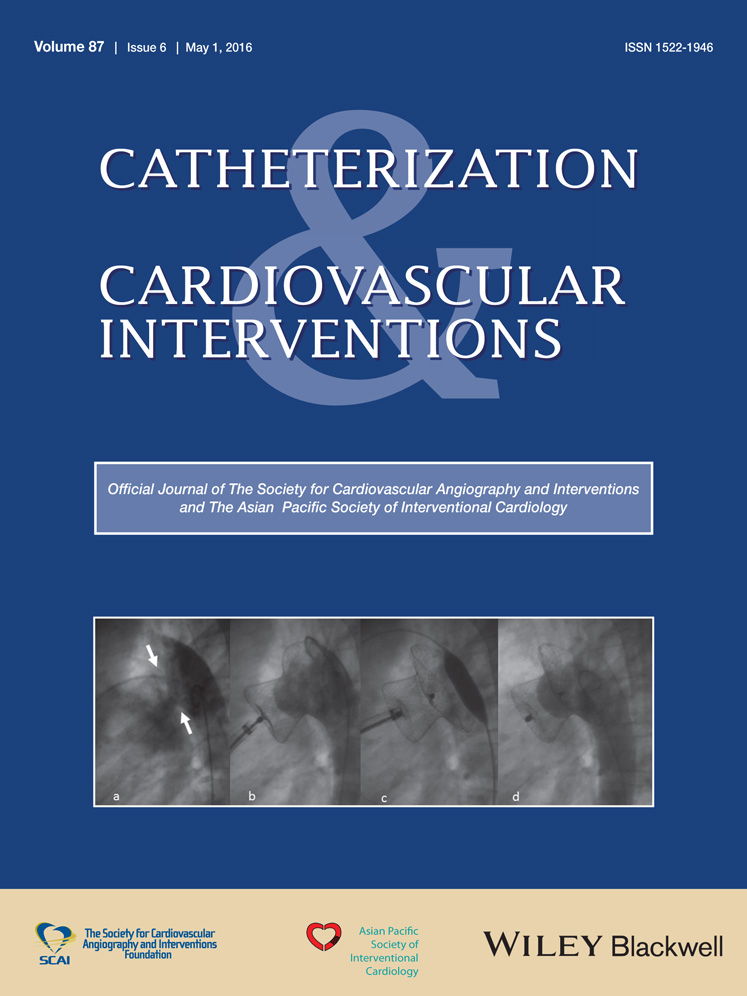Aortic regurgitation following transcatheter aortic valve replacement: Impact of preprocedural left ventricular diastolic filling patterns on late clinical outcomes
Abbreviations: ARpost, postprocedural aortic regurgitation; AS, aortic stenosis; DT, deceleration time; MACE, major adverse cardiovascular events; TAVR, transcatheter aortic valve replacement.
Funding: None.
Conflict of interest: Dr. Ariel Finkelstein receives consultation fees from Medtronic and Edwards lifesciences.
Relationship with industry: Dr. Ariel Finkelstein receives consultation fees from Medtronic and Edwards lifesciences.
Abstract
Objectives
To investigate the impact of preprocedural left ventricular (LV) diastolic function on outcomes of patients with postprocedural aortic regurgitation (ARpost) following transcatheter aortic valve replacement (TAVR).
Background
The predictors and mechanisms of the increased mortality in patients with ARpost are inadequately defined.
Methods
Baseline clinical and echocardiographic variables from a prospective TAVR registry were analyzed. Preprocedural correlates of late outcomes (all-cause mortality and the composite of mortality, stroke, heart failure, and new-onset atrial fibrillation) were examined according to the presence and severity of ARpost.
Results
Of the 418 patients undergoing TAVR, ARpost was present in 212 (51%): mild 36%, moderate–severe 15%. Mean follow-up was 909 ± 489 days. All-cause mortality and composite endpoint rates were significantly increased in patients with moderate–severe ARpost compared with patients with either none or only mild ARpost (38, 22, 21%, P = 0.02; and, 56, 35, 40%, P = 0.01; respectively). Moderate–severe (though not mild) ARpost was independently associated with mortality and the composite endpoint (HR = 1.93 [95%CI 1.15–3.14], P = 0.01; HR = 1.85 [95%CI 1.22–2.77], P = 0.004], respectively). By multivariate analysis, preprocedural LV deceleration time (DT) < 160 ms was independently associated with the risk of all-cause mortality and the composite endpoint among patients with mild AR (HR = 1.74 [95%CI 1.14–2.60], P = 0.01; and, HR = 1.73 [95%CI 1.23–2.41], P = 0.002, respectively) and moderate–severe ARpost (HR = 1.81 [95%CI 1.28–2.51], P < 0.001; HR = 1.86 [95%CI 0.22–2.80], P = 0.004, respectively).
Conclusions
Preprocedural impairment of LV filling, reflected by short DT, portends an adverse prognosis in TAVR patients who develop ARpost independently of other clinical and echocardiocardigraphic measures including AS severity and systolic LV function. © 2015 Wiley Periodicals, Inc.




